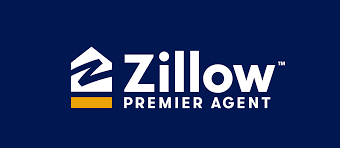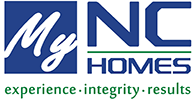
Forbearance 101
The mass casualty of job loss in virtually every sector has seen many homeowners considering mortgage forbearance. If you own a home you've likely received notification from your lender regarding their "willingness" to work with you. Even if you don't own a home, you've likely heard on the radio or TV or online, that the Federal Government through Fannie Mae and Freddie Mac has made all of the lenders who do business with them (Almost all of them) to offer Forbearance and prohibiting them from foreclosing (or in the case of renters; from evicting) for 1 year. While this sounds great as usual there's much more to it than simply being forgiven your payments.
My NC Homes has always believed in supplying our clients the information they need to make smart informed decisions. If you've lost your income(s) due to COVID19 and can't afford to make your mortgage payments then there's no doubt you need to consider working with your lender and asking for Forbearance. After reading this article at the very least you'll have a much better understanding of what you're getting into and the financial repercussions that will likely come down the road. For some folks the smarter move quite honestly would be to sell now, get their equity out and either buy a smaller more affordable home or rent until their financial situation stabilizes.
Below are the facts and the fictions of forbearance. If you are considering your options and have questions and are here in the Research Triangle area, please give us a call or email us. We are local experts; we've seen recessions and booms and can provide honest counsel as to whether it makes sense to sell your home in the current market given your specific situation or not.
Facts and Fiction of Forbearance
Fact: Forbearance is a type of default on a loan due to temporary hardship. HOWEVER, under the CARES Act you may not have to show that you are under hardship. This is how many people are promoting going into forbearance as an easy way to save money while not paying your mortgage. Here's an actual ad that's on Facebook spreading misinformation far and wide

Fiction: Forbearance does not affect your credit score.
Fact: While the forbearance won't affect your credit score, it will still be on your credit profile. This means it could be the reason you are denied a mortgage in the future, whether a purchase or a refinance of your current mortgage. It could even stop you from selling your home in the next 6-12 months because you may not be able to get financing for a new home.
Fiction: Your missed payments are tacked onto the end without interest.
Fact: Your payments are not just tacked on to the end. While this is possible, this simple deferment is not typical. It is more likely your missed payments will be due at the end of the forbearance period, either in a lump sum or you may be offered up to a year (effectively doubling your payments). So if you're able to make your payment now, you won't have saved anything - you'll just have a larger payment to make in a few months and have affected your ability to obtain a future mortgage in the process.
Fact: Banks are not going to forgive you anything, You're going to have to either pay your mortgage (now or later) and if you ask for later there's going to be an added price to pay.
Update: North Carolina
Since I first sat down to put this post together North Carolina Representatives John Szoka, Jason Saine, Kristin Bake, and Perrin Jones filed House Bill 1200 "Foreclosure Prevention Grants/Rental & Utility Assistance. This legislation provides funding to the NC Housing Finance Agency to help pay rent or mortgages for North Carolinians facing foreclosure or eviction, as well as make utility payments. This program is specifically focused to assist property owners and tenants who are facing financial hardship as a result of COVID-19 and mirrors a similar program established during the 2008 financial crisis.
As NC REALTORS® we are proud that our Association has taken the lead among stakeholders on this legislation. If passed, the bill would financially help both tenants and landlords, as well as homeowners and mortgage holders, weather the crisis brought on by COVID-19.
Here is how the legislation structures the program:
- $200 million from North Carolina's share of the federal CARES Act would be transferred to the North Carolina Housing Finance Agency and split into two separate grant programs, each totaling $100 million.
- The Foreclosure Assistance Grant program would provide grants of up to $6,000 directly to an eligible participant's mortgage holder. There are multiple qualifications for receiving a grant through this program, including it is the sole and primary residence of the property owners, verified financial hardship, income threshold compliance (350% of the federal poverty level), and denial from other forbearance or relief abilities.
- The Rental and Utility Payment Assistance program also has similar eligibility restrictions as the Foreclosure Grants and caps the total award amount at $6,000. If the payments are made for rental assistance, they would be paid directly to the landlord on the tenant's behalf at a rate of no more than $1,000 per month (up to six monthly installments). The assistance can cover rental payments that are in arrears. If they are for utility assistance, awards cannot exceed $1,800 and will be paid directly to the individual's utility provider.
This hasn't been passed as of this writing but we felt it important enough to include as it directly relates to Mortgage Forbearance.






Leave A Comment